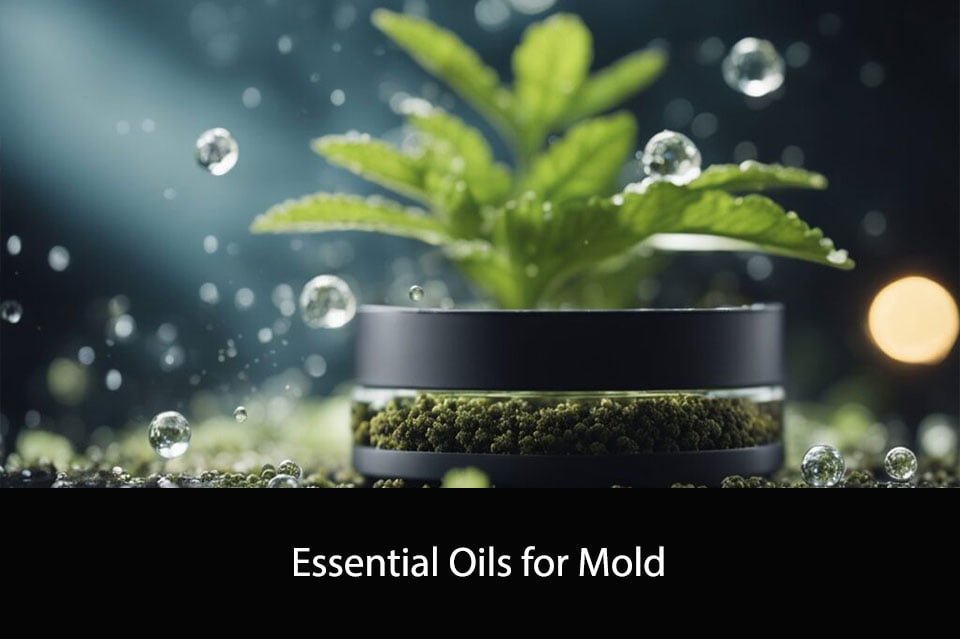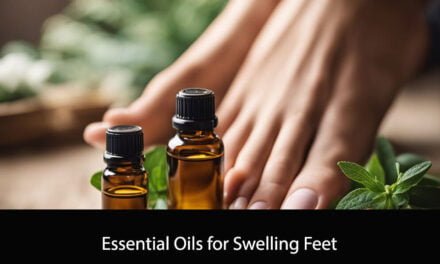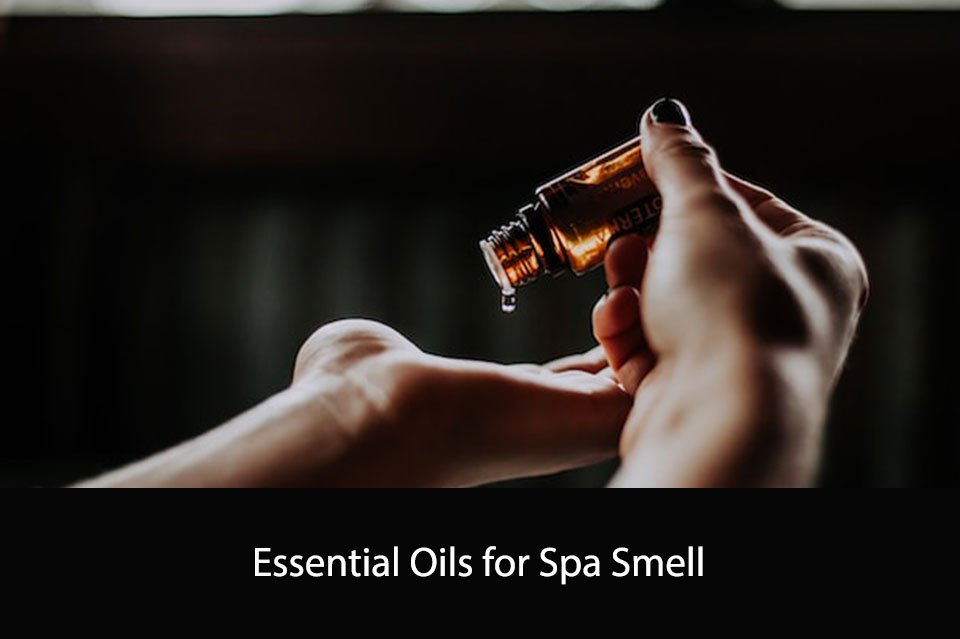Essential oils have been used for centuries as a natural remedy for various health issues. However, did you know that certain essential oils can also be effective in preventing and getting rid of mold in your home? Mold is a common problem that can cause serious health issues if left untreated. It can grow on walls, ceilings, and other surfaces, and can cause respiratory problems, allergies, and other health issues. In this article, we will explore the benefits of essential oils for mold removal and prevention.
Essential oils have antifungal and antibacterial properties that can help eliminate mold and prevent its growth. Some of the most effective essential oils for mold include tea tree oil, grapefruit seed oil, cinnamon oil, and clove oil. These oils can be used in various ways, such as diffusing them in the air, adding them to cleaning products, or mixing them with water and spraying them on affected areas. In addition to their mold-fighting properties, essential oils also have a pleasant aroma that can freshen up your home.
If you are looking for a natural and effective way to get rid of mold in your home, essential oils may be the solution you are looking for. However, it is important to note that essential oils should be used with caution and in moderation. Some people may be sensitive to certain oils, and using too much of them can be harmful. It is also important to address the underlying cause of mold growth, such as moisture or humidity issues, to prevent it from coming back.
Understanding Mold and Essential Oils
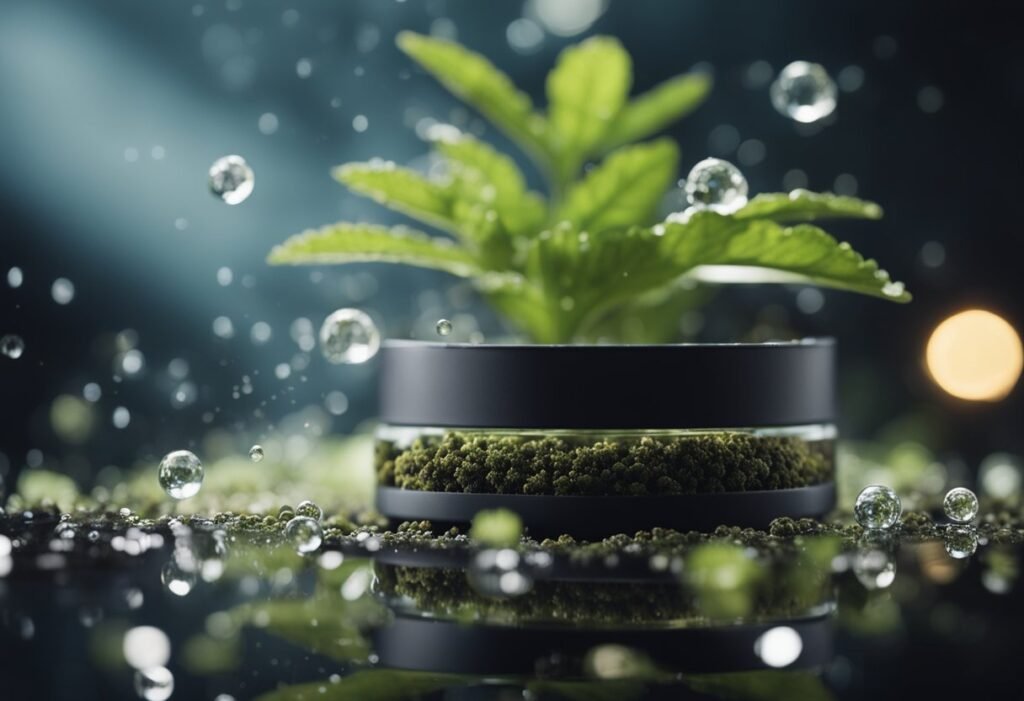
Mold is a type of fungus that thrives in damp and humid environments. It can grow on various surfaces, including walls, floors, and ceilings. Mold spores can cause respiratory problems, allergies, and other health issues.
Essential oils are concentrated plant extracts that can be used for a variety of purposes, including mold prevention and treatment. Some essential oils have antifungal properties, which can help inhibit the growth of mold.
One essential oil that has been shown to be effective against mold is tea tree oil. It contains terpinen-4-ol, which has antifungal properties. Other essential oils that may be effective against mold include oregano, thyme, and cinnamon.
When using essential oils for mold, it is important to dilute them properly and use them in well-ventilated areas. Essential oils should not be used as a substitute for professional mold remediation.
In addition to using essential oils, it is important to address the underlying cause of mold growth, such as moisture or humidity issues. Regular cleaning and maintenance can also help prevent mold growth.
Overall, essential oils can be a useful tool in preventing and treating mold. However, it is important to use them properly and in conjunction with other mold prevention measures.
Best Essential Oils for Mold
When it comes to fighting mold, essential oils can be a powerful tool. Here are some of the best essential oils for mold:
Tea Tree Oil
Tea tree oil is one of the most popular essential oils for mold. It has antifungal, antibacterial, and antiviral properties that make it effective against a wide range of mold species. To use tea tree oil, simply mix a few drops with water in a spray bottle and spray it on the affected area. You can also add tea tree oil to your cleaning products for an extra boost of mold-fighting power.
Clove Oil
Clove oil is another essential oil that is effective against mold. It has strong antifungal properties and can inhibit the growth of mold spores. To use clove oil, mix a few drops with water in a spray bottle and spray it on the affected area. You can also add clove oil to your cleaning products for an extra boost of mold-fighting power.
Thyme Oil
Thyme oil is a powerful antifungal agent that can be used to fight mold. It has been shown to be effective against a wide range of mold species. To use thyme oil, mix a few drops with water in a spray bottle and spray it on the affected area. You can also add thyme oil to your cleaning products for an extra boost of mold-fighting power.
Cinnamon Oil
Cinnamon oil is another essential oil that can be used to fight mold. It has strong antifungal properties and can inhibit the growth of mold spores. To use cinnamon oil, mix a few drops with water in a spray bottle and spray it on the affected area. You can also add cinnamon oil to your cleaning products for an extra boost of mold-fighting power.
In conclusion, essential oils can be an effective tool in the fight against mold. Tea tree oil, clove oil, thyme oil, and cinnamon oil are some of the best essential oils for mold. However, it is important to note that essential oils should not be relied on as the sole method of mold removal. If you have a serious mold problem, it is best to consult a professional.
How Essential Oils Combat Mold
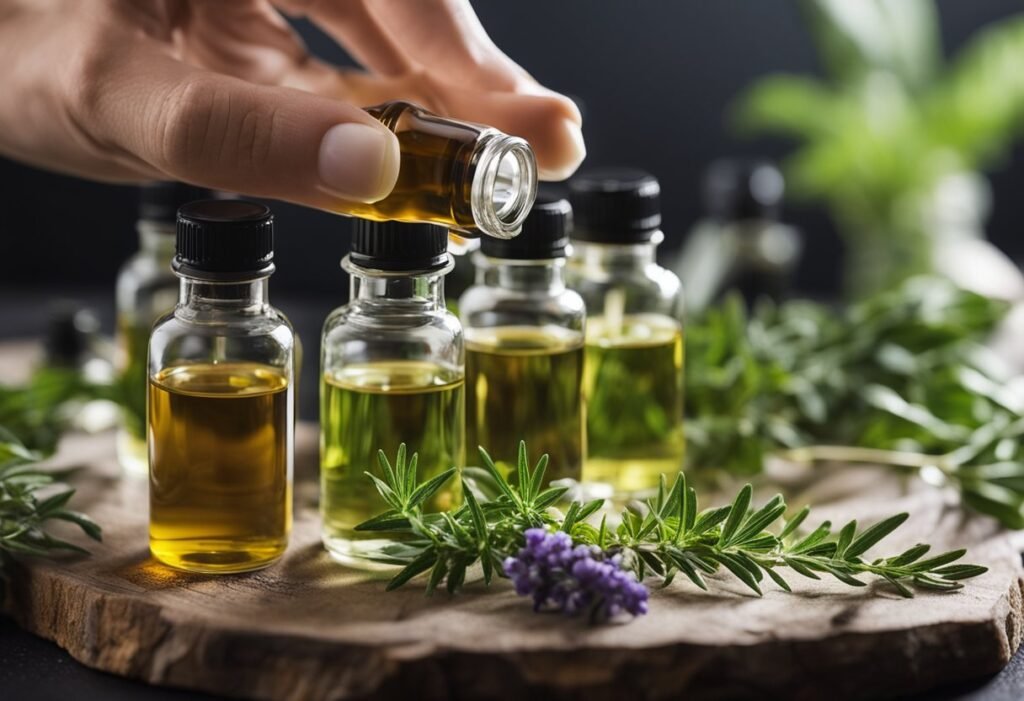
Essential oils are known for their antimicrobial properties, making them a natural and effective way to combat mold. When used correctly, essential oils can inhibit the growth of mold and prevent it from spreading.
Here are some ways essential oils combat mold:
- Antifungal properties: Essential oils such as tea tree, oregano, and thyme have antifungal properties that can kill mold spores and prevent them from growing.
- Disinfecting properties: Essential oils such as lemon, grapefruit, and eucalyptus have disinfecting properties that can kill bacteria and viruses, including those that may be present in mold.
- Deodorizing properties: Essential oils such as lavender, peppermint, and cinnamon have deodorizing properties that can help eliminate musty odors caused by mold.
To use essential oils for mold, add a few drops to a diffuser or spray bottle filled with water. You can also mix essential oils with a carrier oil, such as coconut or jojoba oil, and apply the mixture directly to moldy surfaces.
It’s important to note that essential oils should not be used as a substitute for professional mold remediation. If you have a serious mold problem, it’s best to consult with a professional to ensure proper removal and prevention.
Application Methods for Mold Remediation
Diffusion
One of the most effective ways to use essential oils for mold remediation is through diffusion. You can diffuse essential oils in a diffuser or by adding a few drops to a bowl of hot water. Diffusing essential oils can help to purify the air and kill mold spores.
Some of the best essential oils for diffusion include tea tree oil, eucalyptus oil, and lavender oil. These oils have antifungal properties and can help to inhibit the growth of mold.
Direct Application
Another way to use essential oils for mold remediation is through direct application. You can apply essential oils directly to moldy surfaces or areas in your home. To do this, mix a few drops of essential oil with water in a spray bottle and spray the affected area.
Some of the best essential oils for direct application include tea tree oil, cinnamon oil, and thyme oil. These oils have powerful antifungal properties and can help to kill mold spores on contact.
Spray Solutions
You can also create a spray solution using essential oils for mold remediation. To do this, mix a few drops of essential oil with water in a spray bottle and shake well. Spray the solution on moldy surfaces or areas in your home.
Some of the best essential oils for spray solutions include tea tree oil, grapefruit seed extract, and oregano oil. These oils have strong antifungal properties and can help to kill mold spores and prevent regrowth.
Overall, essential oils can be a powerful tool for mold remediation. By using diffusion, direct application, or spray solutions, you can effectively kill mold spores and inhibit the growth of mold in your home.
Safety Measures and Considerations
When using essential oils for mold, it is crucial to take the necessary safety measures and considerations to avoid any potential harm. In this section, we will discuss three essential factors to keep in mind: proper dilution, skin sensitivity, and ventilation.
Proper Dilution
Essential oils are highly concentrated, and using them undiluted can cause skin irritation, allergic reactions, and other adverse effects. Therefore, it is crucial to dilute them properly before use. The recommended dilution ratio for essential oils for mold is 1% to 2% in a carrier oil or water-based solution. This means adding 1 to 2 drops of essential oil per teaspoon of carrier oil or water.
Skin Sensitivity
Some essential oils can cause skin irritation, especially when used in high concentrations or on sensitive skin. Therefore, it is essential to perform a patch test before using any essential oils for mold. To do this, mix one drop of essential oil with one teaspoon of carrier oil and apply a small amount to the inside of your elbow. Wait for 24 hours and check for any signs of irritation or allergic reactions. If you experience any adverse effects, avoid using the essential oil.
Ventilation
When using essential oils for mold, it is essential to ensure proper ventilation. Essential oils can release volatile organic compounds (VOCs) that can cause respiratory problems, headaches, and other health issues. Therefore, it is recommended to use essential oils in a well-ventilated area and avoid inhaling them directly. Using a diffuser or adding a few drops of essential oil to a bowl of hot water can help disperse the oil and reduce the risk of inhalation.
By following these safety measures and considerations, we can use essential oils for mold safely and effectively.
Comparing Natural Remedies to Chemical Solutions
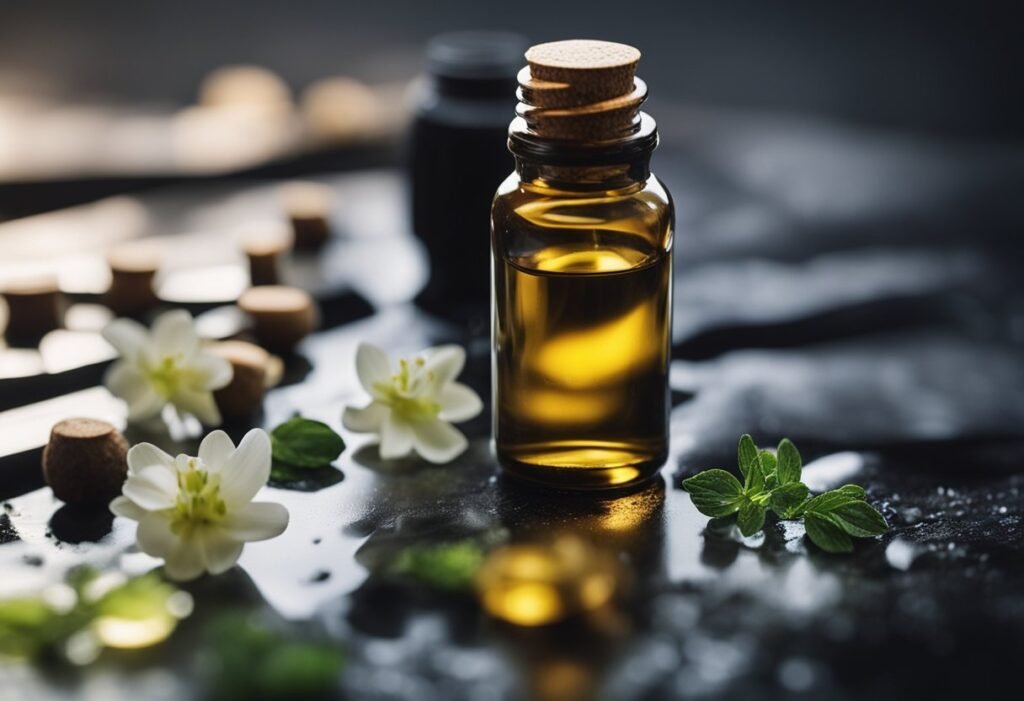
When it comes to dealing with mold, there are two main options: natural remedies and chemical solutions. While chemical solutions may seem like the most effective solution, they often come with negative side effects and can be harmful to both humans and the environment.
On the other hand, natural remedies such as essential oils offer a safe and effective alternative. Essential oils are derived from plants and are completely natural, making them a great choice for those who are looking for a non-toxic solution to mold problems.
One of the main benefits of using essential oils is that they are not harmful to humans or pets. Chemical solutions, on the other hand, can cause respiratory problems, skin irritation, and other health issues. Essential oils also have a pleasant scent, which can help to eliminate unpleasant odors caused by mold.
Another advantage of using essential oils is that they are environmentally friendly. Chemical solutions can be harmful to the environment and can contaminate water sources. Essential oils, on the other hand, are completely biodegradable and do not have a negative impact on the environment.
Overall, while chemical solutions may seem like the most effective option for dealing with mold, they often come with negative side effects and can be harmful to both humans and the environment. Essential oils offer a safe and effective alternative that is non-toxic, pleasant smelling, and environmentally friendly.
Maintenance and Prevention Strategies
Regular Cleaning Routines
To prevent mold growth, we recommend establishing a regular cleaning routine. This includes wiping down surfaces in areas that are prone to moisture, such as bathrooms and kitchens, with a solution of vinegar and water. We also suggest vacuuming carpets and upholstery regularly to remove any mold spores.
Humidity Control
Mold thrives in humid environments, so it is important to keep the humidity levels in our homes under control. We recommend using a dehumidifier in areas that tend to be humid, such as basements and bathrooms. Keeping indoor humidity levels between 30-50% can help prevent mold growth.
Adequate Ventilation
Proper ventilation is crucial in preventing mold growth. We suggest using exhaust fans in bathrooms and kitchens to remove excess moisture from the air. Additionally, opening windows and doors to increase air flow can help reduce the risk of mold growth.
By implementing these maintenance and prevention strategies, we can effectively reduce the risk of mold growth in our homes. Remember to stay consistent with cleaning routines, control humidity levels, and ensure adequate ventilation to keep our homes mold-free.
Frequently Asked Questions
Which essential oils are most effective for eliminating mold on wood surfaces?
Tea tree, clove, cinnamon, and thyme essential oils are known to be effective against mold on wood surfaces. These oils have antifungal properties that can help prevent mold growth and eliminate existing spores.
What is the best recipe for an essential oil mold spray?
To make a mold spray, mix 10 drops of tea tree oil, 10 drops of clove oil, and 1 cup of water in a spray bottle. Shake well before use. This mixture can be sprayed onto surfaces to help prevent mold growth and eliminate existing spores.
Can essential oils be used in a diffuser to address mold issues in the air?
Yes, essential oils can be used in a diffuser to address mold issues in the air. Tea tree, eucalyptus, and lavender essential oils are known to be effective against mold spores in the air. Diffusing these oils can help purify the air and prevent mold growth.
How do essential oils compare to other natural methods for killing mold spores?
Essential oils are a natural and effective method for killing mold spores. They are safe to use and do not contain harmful chemicals. Other natural methods for killing mold spores include vinegar, hydrogen peroxide, and baking soda. However, these methods may not be as effective as essential oils.
What are the recommended essential oils for treating mold on walls?
Tea tree, cinnamon, and thyme essential oils are recommended for treating mold on walls. These oils have antifungal properties that can help prevent mold growth and eliminate existing spores.
Are there specific essential oils recommended by doTERRA for mold remediation?
doTERRA recommends using their On Guard blend for mold remediation. This blend contains essential oils such as cinnamon, clove, and eucalyptus, which are known to be effective against mold spores. However, it is important to note that other essential oils can also be effective for mold remediation.

